Aspendus
Q633757Aspendus: ancient city in southern Turkey, best known for its well-preserved theater.
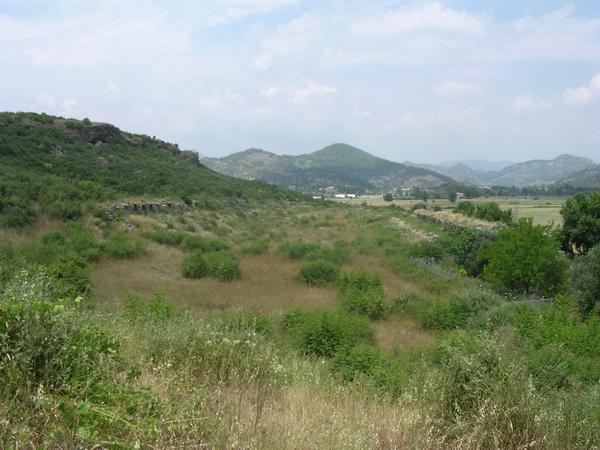
Aspendus, modern Serik, was a town in Pamphylia, a region that was believed to have been settled by Greeks from Argos in the century after the legendary Trojan War. It was situated on the banks of the river Eurymedon, where the Athenian admiral Cimon defeated the Persians in 465. After the conquests of Alexander the Great, Pamphylia became Greek.
During the Roman occupation, the town became an important center of the trade in salt, oil, corn, wine, and horses. The ruins we can visit today, date from this period.
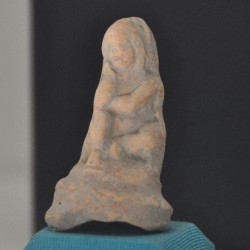 Aspendus, Figurine |
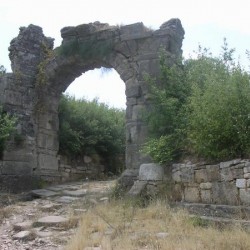 Aspendus, East gate |
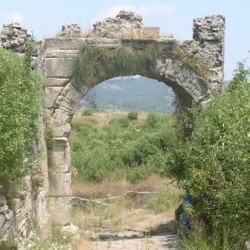 Aspendus, East gate |
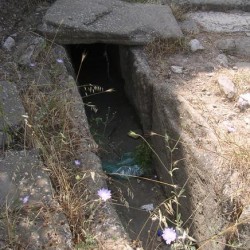 Aspendus, Sewer |
The agora (market place) is the site of one of the strangest stories from Greek philosophy. The charismatic Pythagorean teacher Apollonius of Tyana, who had taken a vow of silence, was asked to put an end to a food shortage by an angry mob, that was about to kill one of the responsible magistrates. According to his biographer Philostratus, Apollonius wrote a letter to the grain merchants, threatening them with immediate death; they immediately repented.note The story is no doubt apocryphal, but food shortages were common, and no doubt magistrates were never certain of their fate.
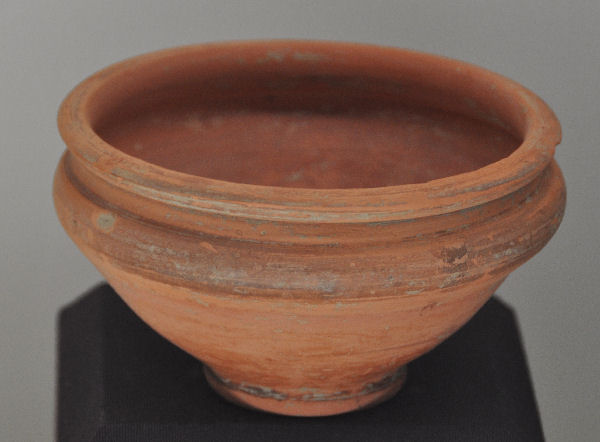
The famous theater was built in 155 CE, the bouleuterion (town hall) is a bit younger, and the basilica on the agora was built in the third century. This building is more than 100 meters long and 25 meters wide: about the size of the basilica of a much larger city like Carthage. It was later converted into a church.
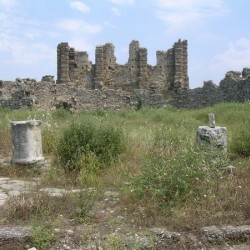 Aspendus, Bouleuterion |
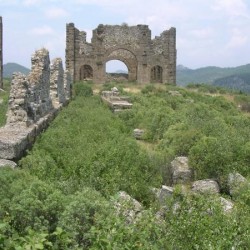 Aspendus, Basilica |
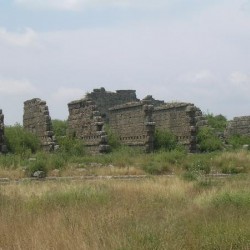 Aspendus, Agora with shops |
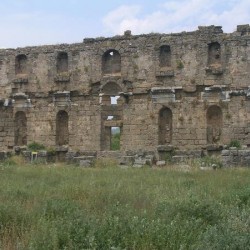 Aspendus, Nymphaeum |